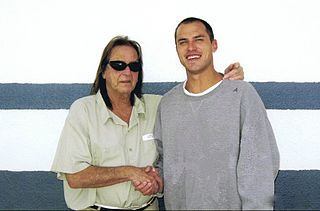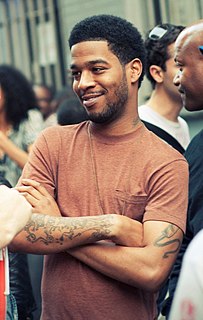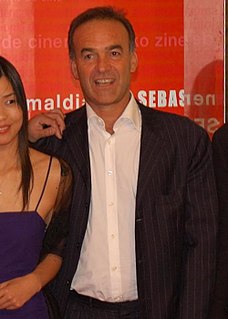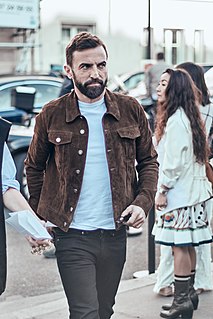A Quote by Carl Hart
I think about my cocaine use. I liked it. I thought it was a great drug. But I knew that if I was doing that almost exclusively, I wouldn't be able to continue to also have significant others and a wide range of other things. And I wasn't special. A number of people, including the people I was doing cocaine with, also behaved the same way.
Related Quotes
Looking at the data and at my drug use and evaluating it carefully just let me see that I wasn't special, but my drug use challenged what I thought about cocaine. Because I would accept when I would say, "What happened to that person?" and someone would say, "They started using cocaine...they went downhill..." I would just accept that, even though I had a different experience and all these other people had a different experience. But I would throw that out because I thought my experience was an aberration.
I thought cocaine was a fantastic drug. A wonder drug, like everybody else. It gave you [an] energy burst. You could stay awake for days on end, and it was just marvelous and I didn't think it was evil at all. I put it almost in the same category as marijuana, only hell of a lot better. It was a tremendous energy boost. It gave the feeling, a high, but nobody knew, well maybe a small percentage of people knew. But eventually everybody knew how evil it really was.
I started doing cocaine to get through interviews, 'cause people wanted to know a lot about my personal life and I wasn't prepared for a 60 Minutes interview every time. Doing bumps I was able to get through the day, but then I would smoke weed to calm me down - it was the only way I could get through the day without people noticing I was doing it.
The policy that received more attention particularly in the past decade and a half or so has been the US cocaine policy, the differential treatment of crack versus powder cocaine and question is how my research impacted my view on policy. Clearly that policy is not based on the weight of the scientific evidence. That is when the policy was implemented, the concern about crack cocaine was so great that something had to be done and congress acted in the only way they knew how, they passed policy and that's what a responsible society should do.
Cocaine and crack are essentially the same thing. Cocaine is a middle-class drug. Crack is a poor person's drug, which carries a felony conviction for possession. And once you get this felony conviction, which given that the whole community is pretty much strung out on it, you become basically sidelined into an alternative kind of lifestyle. You become completely marginalized. You can't get public housing, you can't get a lot of jobs, you can't vote. You have a real problem doing anything to get you out of the rut that you're in. You become basically a non - person.
I used to see a lot of cocaine. There were journalists who used cocaine and didn't write about it and I didn't write about it. I would never do drugs, so I would always get the same response from people: "Smart kid, more for me." Whether it was a joke or sincere or both, but I was just happy not to be in there partying with the band like some of these other journalists.
There was something really wonderful about being able to feel confident about doing my first exhibition in China, that people would have no trouble recognising the images and understanding my work. I also have a lot of freedom in the way I use colour, and I think that kind of freedom in colour is also understandable in every culture.
I love this idea of being able to touch people with something quite familiar, something quite emotional, and at the same time, have the feeling that this is a new way of doing it, a fresh way of showing things. I like radical people. At the same time, I'm fascinated by popularity, people who were able to have huge success and also keep their consistency.
In truth I never really liked any of the heavy drugs, because normally my energy is up when I'm performing, and that's about it. Cocaine is nothing new. It's the pressure, I think. People use it to relieve that, and for me it is about getting numb and forgetting. I have a reverse metabolic reaction to the stuff.
I found my voice when I started doing YouTube videos, and that's when I was pretty old, to be honest. I think it's about exploration. I think it's about trying new things, meeting new people, and also, it's about borrowing inspiration from other people. Because I still have those moments where I'm like, "Oh my God, I'm a loser, what am I doing?"

































